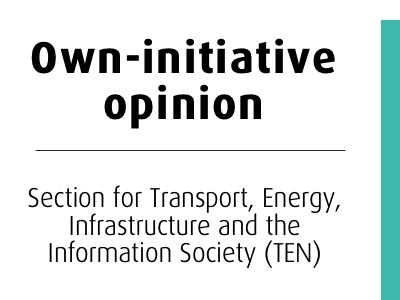European Economic
and Social Committee
Safeguarding Democracy Against Disinformation
Background
The recent evolution of the international context has increased the challenges relating to disinformation, which are further enhanced by the advancement of digital technologies. Since the European elections in 2019, the Commission has attached particular importance to strengthening and revitalising European democracy with the goal of empowering citizens and building more resilient democracies across the EU, including by countering disinformation. The European Parliament has also consistently pushed for a joint European response to disinformation and to fight disinformation in the EU and its neighbourhood.
Disinformation is a cross-cutting issue, and the EESC has adopted several opinions on this topic, underlining its negative effects for European democracy. In particular, the Committee has pointed out that actions need to be taken to prevent the importation of discrimination and bias in the digital world, as well as disinformation and manipulation.
In view of the upcoming European elections, the EESC will adopt an own-initiative opinion on Safeguarding Democracy against Disinformation, which will analyse the situation, put forward concrete recommendations and offer the opportunity to engage directly with organisations representing young people, who are one of the major targets of disinformation and manipulation, especially through new technologies and social media.
Key points
The EESC:
- warns European authorities of the urgent need to assess the risks of addiction that social media and digital platforms create in vulnerable groups of our societies and to regulate the commercial use of Artificial Intelligence and algorithms.
- suggests that the EU Institutions and all the Member States engage in a multi-factor strategy that reinforces all the previous measures to fight disinformation and prevents the use of digital platforms by organised fake identities as well as promotes the adoption of instruments that foster cooperation between national, regional and local news media in Europe.
- asks the European Commission to evaluate the effect of the current regulations applied to social media and digital platforms regarding disinformation and to analyse the current level of disinformation monetisation in social media and digital platforms.
- requests the European Commission to develop a plan that ensures quality in local and regional information.
- asks that adequate resources be provided to the European External Action Service to fight and control foreign information manipulations and interference.
- requests that the European and digital media observatory (EDMO) be reinforced to serve as a hub for fact checkers independent of all public authorities aiming to improve detection of online disinformation and to empower citizens to respond to online disinformation.
- observes that a necessary first step to guaranteeing that pluralism in the media is not dependent on strict market rules is to classify journalism as a European public good as suggested by UNESCO.
- recommends that the Commission study the viability of a public European news channel available on different platforms and in all national languages with an independent editorial commitment to allow citizens access to factual information.
Additional information
Section: Transport, Energy, Infrastructure and the Information Society (TEN)
Opinion number: TEN/830
Opinion type: Own-initiative
Rapporteur: John Comer (Group III - Ireland), Carlos Manuel Trindade (Group II - Portugal)
Date of adoption by section: 4 April 2024
Result of the vote: 74 in favour, 0 against, 1 abstention
Date of adoption in plenary: 24-25 April 2024
Result of the vote: 161 in favour, 0 against, 2 abstentions
Contact
Marco Pezzani
Press Officer
Tel.: +32 2 546 9793 | Mob: +32 470 881 903
E-mail: marco.pezzani@eesc.europa.eu
Francesco Napolitano
Administrator
Tel.: +32 546 8921
